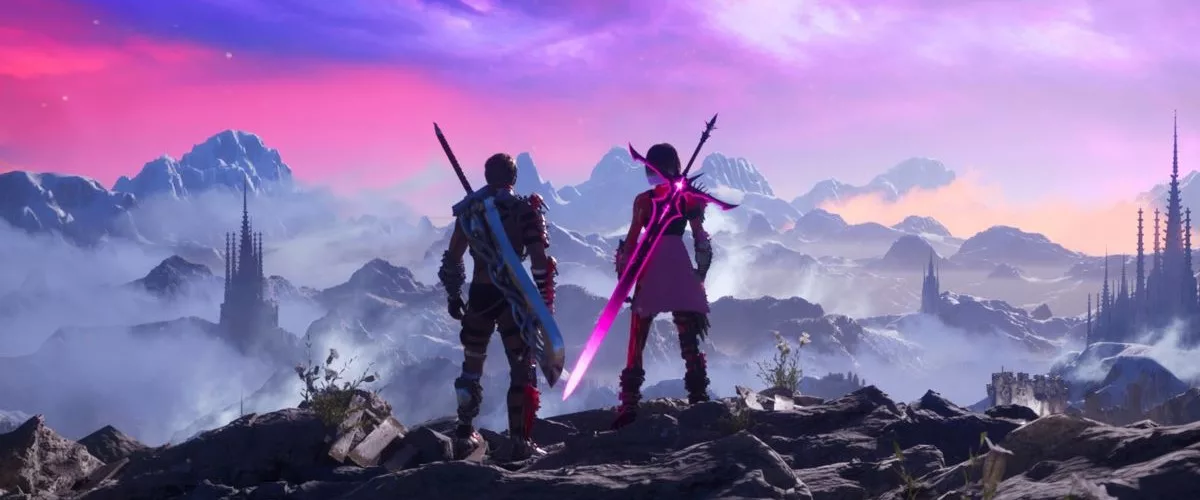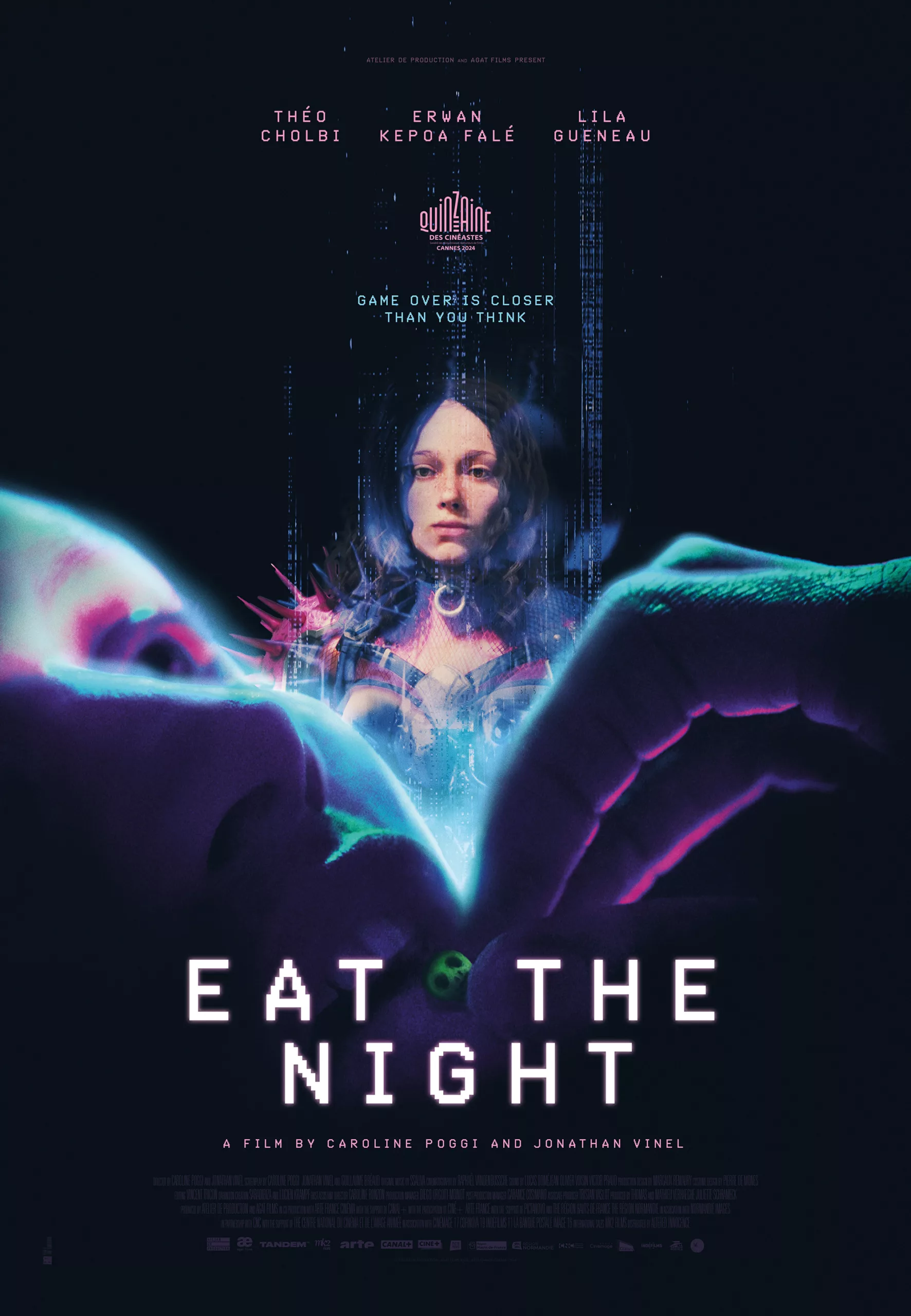Narratively disjointed but drumming with earnest yearning, directors Jonathan Vinel’s and Caroline Poggi’s queer romantic thriller “Eat the Night” understands the lived-in comforts of a virtual space when compared to the horrors of the outside world. It is the latest installment of in a series of films with similar thematic DNA, such as “I Saw the TV Glow,” “Grand Theft Hamlet,” and “The Remarkable Life of Ibelin,” that have explored how, for those on the margins, media serves not as mindless escapism, but as a way to form genuine connection, community, and relationships.
The film works best when it cogitates on this theme. For a younger generation becoming increasingly more isolated (not to mention political unrest and a deteriorating environment), it’s not only understandable but necessary to seek solace mediated through the safety of a screen. Regrettably, the “real world” of these characters is far less interesting to explore than the times the characters spend in the virtual one so lovingly rendered by Vinel and Poggi.
The media that’s central for the characters in “Eat the Night” is “Darknoon,” an MMORPG in the vein of “World of Warcraft” and “League of Legends.” For brother and sister Pablo (Théo Cholbi) and Apolline (Lila Gueneau), playing “Darknoon” is a way to escape the hardship of their own lives, which oscillates between monotony and violence. Their father, though alive, is neglectful, so the two can only rely on each other.
The older Pablo’s method of provision is through dealing homemade drugs, which he concocts with his associate, Night (Erwan Kepoa Falé). At the start of the film, Pablo and Apolline learn that “Darknoon”’s servers will be shut down by the winter solstice, leaving them sixty days to enjoy the last bit of the game’s world and quests. For Apolline, it might as well be a death sentence, and she loses herself even more to the game, hoping that by soaking up as much as she can, it might mitigate the pain of its absence. Pablo furthers his drug dealings and begins to get romantically entangled with Night. Pablo and Night’s business ruffles the feathers of a rival gang, and the threat of impending violence cleverly mirrors the winding countdown of “Darknoon”’s end.
The gnawing, human need (and ability) to find connection amidst even the most perilous circumstances is the film’s strongest throughline. Vinel and Poggi render Pablo and Night’s lovemaking as romantic but also desperate. Cinematographer Raphaël Vandenbussche’s camera makes note of the way they cling to each other in their many moments of coital consummation; it’s often done in dark rooms, where the natural light seems only to illuminate one of their bodies at a time. There’s a sense that they’re grateful to have found each other but know that such peace can be undone at a moment’s notice, and thus, they have to make the most of the time they have.
It’s a clever study of contrasts to then see Apolline make connections with players in the vibrant and foliage-laden landscapes of “Darknoon,” where nothing is hidden and everything is illuminated. Encomium is due for the world of “Darknoon,” which never feels like a low-grade knockoff but rather a type of game that would be easy to get lost in. Vinel and Poggi aren’t afraid to showcase “still life” in the game either, often focusing on Pablo and Apolline’s in-game avatars simply standing still idly; there were many moments where I thought the film had frozen before I appreciated the directors’ use of such silence. How, for Apolline and Pablo, such moments could be the only times they felt peace.
In another clever and humorous use of the “Darknoon“ world, Apolline accuses her brother of spending too much time in-game with Night. To this, Pablo’s avatar dances indifferently to goad her, and Apolline cuts down a tree in the game and sticks an axe in his head. The two laugh about it, and it showcases the ways in which the medium of role-play communicates a deeper truth than words ever can.
The moments the film oscillates back to the real world are less interesting; the drug plot between Night, Pablo, and the rival gang devolves into meaningless melodrama. Night himself is given far too little characterization to make a compelling reason as to why Pablo would begin to spend less time with his sister in need of him. While Gueneau plays Apolline with tender misanthropy, the character is given very little personality or motive beyond simply wanting to play “Darknoon”; that may be intentional, but it makes her frustratingly one-note-in comparison to Pablo’s more fleshed-out desires and arc.
Even when the film can feel like a potpourri of different side quests, it remains compelling. Vinel and Poggi have a lot to share about how reality can get in the way of the fantasies we’ve constructed, and how the safety and anonymity we cultivate online can be done at any moment. It never condemns its characters for wanting to use the virtual world to flee or disassociate from tribulation, but it also gently reminds us that there are things worth fighting and living for. The screen can be both a cage and a home.




















